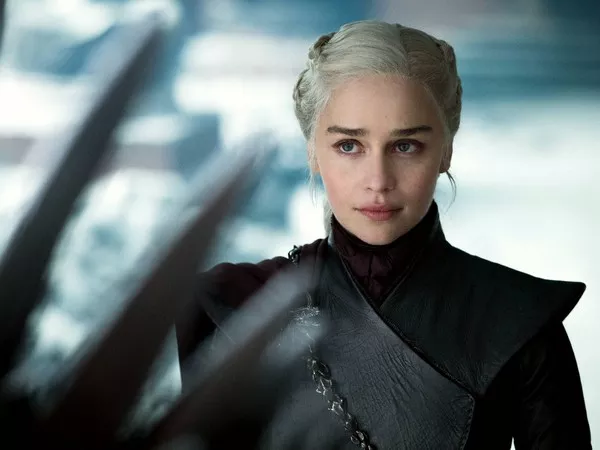“Game of Thrones,” the epic fantasy television series based on George R.R. Martin’s “A Song of Ice and Fire” novels, captivated audiences worldwide with its complex characters, intricate plots, and stunning visuals. Premiering in 2011, the show was a cultural phenomenon that left a lasting impact on the television landscape. This article aims to explore the central themes and closely related topics of “Game of Thrones,” delving into the world of Westeros, the struggles for power, and the deeper messages embedded within the narrative.
1. The World of Westeros
At the heart of “Game of Thrones” lies the fictional continent of Westeros, a vast and diverse landmass with various regions and cultures. The story begins with political intrigue as noble houses vie for the Iron Throne, the seat of power in the Seven Kingdoms. Westeros is portrayed as a land steeped in history and legend, with a dark and mysterious past that still shapes the present.
2. The Struggle for Power
One of the central themes of “Game of Thrones” is the relentless struggle for power among the noble houses. The show presents a complex web of alliances, betrayals, and shifting loyalties as characters seek to secure their positions in the political landscape. The quest for the Iron Throne drives much of the plot, leading to wars, assassinations, and unexpected alliances.
3. Complex Characters and Moral Ambiguity
A defining aspect of the series is its richly developed characters, each with their own motivations and flaws. “Game of Thrones” defies traditional storytelling by presenting morally ambiguous characters, blurring the lines between hero and villain. Characters like Tyrion Lannister, Daenerys Targaryen, and Jaime Lannister undergo significant transformations throughout the series, challenging viewers’ perceptions and offering a more nuanced portrayal of human nature.
4. Fantasy and the Supernatural
While “Game of Thrones” is rooted in political intrigue, it incorporates elements of high fantasy and the supernatural. From the enigmatic White Walkers to the mystical dragons, the show introduces magical elements that add depth and mystery to the story. The presence of fantastical creatures and ancient prophecies also underscores the theme of the balance between magic and mundane in the world of Westeros.
5. The Exploration of Power and Leadership
The series serves as an exploration of power and leadership, highlighting the different styles of rulership and their consequences. Characters like Jon Snow and Daenerys Targaryen are faced with the challenge of leading in the face of adversity, while others, like Cersei Lannister and Joffrey Baratheon, demonstrate the pitfalls of tyrannical rule. Through these portrayals, “Game of Thrones” provides insights into the complexities of governance and its impact on the people.
6. Themes of Honor, Loyalty, and Betrayal
Honor and loyalty play a significant role in the world of Westeros, but they are often tested and compromised by the brutal political landscape. Characters are frequently torn between their sense of duty and personal desires, leading to difficult choices and betrayals. The exploration of these themes adds depth to the story and reflects the challenges faced by those in positions of power.
7. Social and Gender Dynamics
“Game of Thrones” does not shy away from addressing social issues and gender dynamics. The portrayal of women in the series evolves from traditional roles to positions of authority and influence. Characters like Sansa Stark and Arya Stark challenge societal norms and demonstrate strength and resilience in a world dominated by men. The show’s treatment of gender roles sparks discussions about representation and empowerment in popular media.
8. The Cost of War and Violence
War and violence are pervasive throughout “Game of Thrones,” and the show does not shy away from depicting their consequences. The brutality of battle and the toll it takes on individuals and societies are explored in harrowing detail. Themes of loss, trauma, and the cycle of vengeance are interwoven into the narrative, serving as a stark reminder of the true cost of conflict.
9. Subversion of Tropes and Expectations
“Game of Thrones” became renowned for subverting traditional narrative tropes and defying audience expectations. Major characters were unexpectedly killed off, and storylines took surprising turns, keeping viewers on the edge of their seats. This subversion of expectations challenged conventional storytelling norms, making the series all the more unpredictable and compelling.
10. Legacy and the Nature of Stories
As the series concludes, “Game of Thrones” contemplates the nature of stories and the weight of history and legacy. Characters grapple with their roles in shaping the future and how their actions will be remembered by future generations. This introspective approach adds a layer of philosophical depth to the show’s epic narrative.
Conclusion
“Game of Thrones” was more than just a fantasy television series; it was a cultural phenomenon that sparked countless discussions and debates. Its exploration of power, politics, and human nature, coupled with its richly developed characters and breathtaking visuals, left an indelible mark on popular culture. While the show’s conclusion was met with a mix of reactions, its legacy as a groundbreaking and influential work of storytelling endures. As fans continue to revisit the world of Westeros through the novels and the television series, the complex themes and closely related topics of “Game of Thrones” will undoubtedly continue to be analyzed and appreciated for years to come.

























